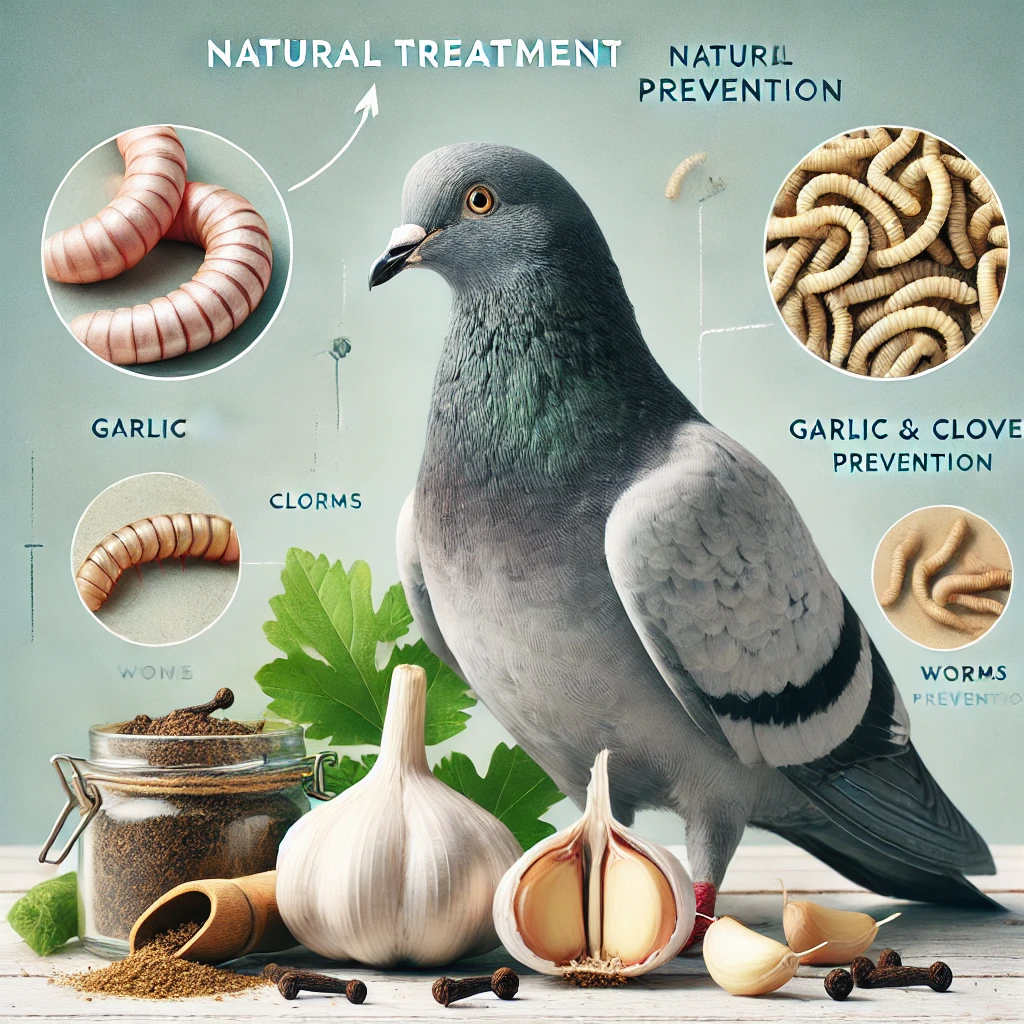Pigeon worms are one of the most common health issues faced by pigeon fanciers, especially those raising racing pigeons. Understanding the types of worms, their effects, and how to treat them is crucial for maintaining the health of the pigeons and improving their performance in races. In this article, we will cover the essential information about pigeon worms and how to deal with them.
1. Types of Pigeon Worms:
There are several types of worms that may affect pigeons, including:
- Roundworms (Nematodes): These are found in the pigeon’s intestines and can cause significant health problems.
- Tapeworms (Cestodes): They also reside in the intestines, leading to nutrient depletion.
- Lungworms: These affect the respiratory system and cause breathing difficulties in pigeons.
2. Symptoms:
Pigeons infected with worms may exhibit a range of symptoms, such as:
- Rapid weight loss is one of the most noticeable signs of infection.
- Fanciers may observe unusual diarrhea in the birds.
- The pigeons may appear weak and less active.
- In cases of lungworm infestation, pigeons may struggle with breathing.
The Impact of Worms on Pigeon Racing Performance
Worms are parasites that negatively affect the health of racing pigeons, leading to a decline in their racing performance. Below are the main effects worms can have on pigeons:
1. Weight Loss
Worms deplete the pigeon’s body of essential nutrients, causing weight loss. A pigeon that loses weight is less competitive, as it requires sufficient energy to fly fast.
2. Physical Performance Decline
Worms deteriorate the overall health of pigeons, resulting in reduced energy and endurance. During races, pigeons may tire quickly, impacting their performance.
3. Navigational Ability Decline
Some worms, such as lungworms, affect the pigeon’s respiratory system, causing breathing difficulties during flight. This problem directly impacts the pigeon’s ability to navigate and return home.
4. Decreased Immunity
Worm infections weaken the pigeon’s immune system, making them more susceptible to other diseases. Weaker pigeons may not endure races or cope with harsh conditions as effectively.
5. Behavioral Changes
Worm infestations can lead to behavioral changes, such as decreased activity and reluctance to fly or train, negatively affecting race preparations.
6. Secondary Infections
Pigeons infested with worms become more prone to secondary infections, such as inflammations, which further impact their readiness to compete in races
medications for treating pigeon worms
Here is a list of common medications used to treat pigeon worms:
- Fenbendazole
Use: Effective against roundworms and tapeworms.
Administration: Given orally or mixed in drinking water. - Praziquantel
Use: Highly effective against tapeworms.
Administration: Can be given as a tablet or mixed in food. - Mebendazole
Use: Used to treat roundworms and is considered safe for pigeons.
Administration: Administered via food or drinking water. - Levamisole
Use: Treats roundworms and acts as an immune booster.
Administration: Can be administered orally or mixed in drinking water. - Ivermectin
Use: Effective against parasitic worms and some external parasites like fleas.
Administration: Usually given via injection or applied as a drop on the skin. - Morantel
Use: Used for treating roundworms.
Administration: Given in food or mixed in drinking water.
Using Garlic and Cloves for Pigeon Worm Prevention

Garlic and cloves are effective natural remedies for preventing pigeon worms. When used regularly in the pigeons’ diet, they can help reduce the risk of intestinal parasites. Garlic contains natural antiparasitic compounds that promote a healthy digestive system, minimizing the likelihood of worm infestations. On the other hand, cloves are a potent source of antioxidants and possess anti-inflammatory properties, which help boost the pigeons’ overall immunity.
By incorporating garlic and cloves into the pigeons’ diet year-round, pigeon fanciers can enhance their birds’ health, reduce worm-related issues, and ensure better performance in races. This natural approach serves as a safe and effective way to support pigeon health in a sustainable manner.
